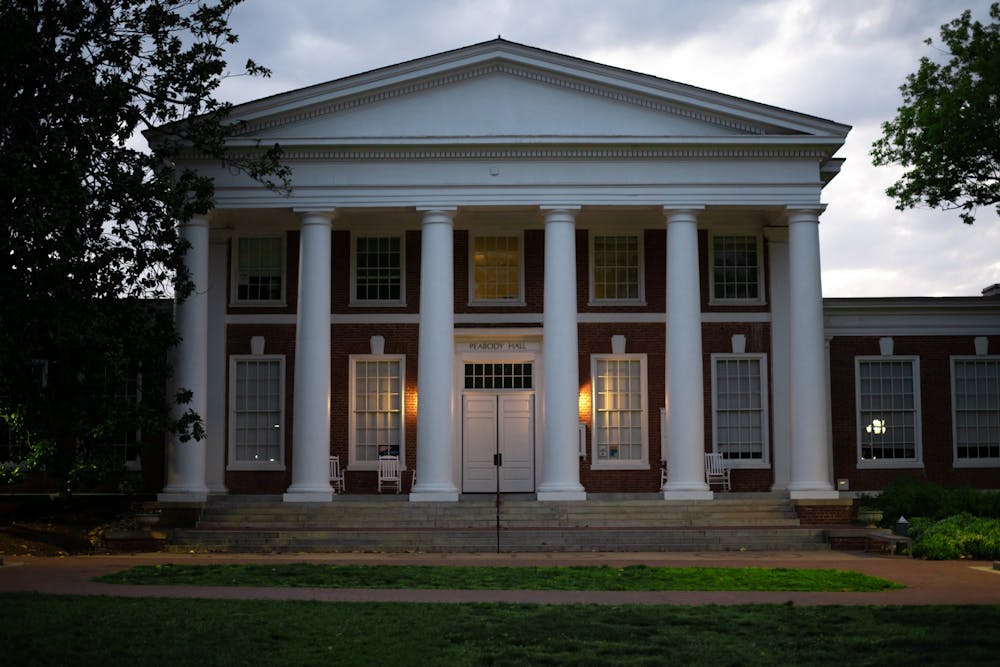In the wake of the Supreme Court of the United States’ Thursday morning ruling that Harvard’s and University of North Carolina’s affirmative action policies are unconstitutional, the University is still evaluating how the court’s decision will affect its admission policies, said University President Jim Ryan and Ian Baucom, executive vice president and provost in a joint email statement to the University community.
“We will, of course, continue to follow the law,” the statement read. “We will also continue to do everything within our legal authority to recruit and admit a class of students who are diverse across every possible dimension and to make every student feel welcome and included here at U.Va.”
Ryan said he will send another update to the University community later in the summer that will have more information about the University’s approach going forward.
The 6-3 Supreme Court ruling in Students for Fair Admissions v. University of North Carolina and the 6-2 ruling in Students for Fair Admissions v. President and Fellows of Harvard College found that race-conscious admissions processes at the University of North Carolina and Harvard were unconstitutional due to “racial stereotyping,” in the words of Chief Justice John G. Roberts Jr.
Universities may still consider how race has affected a student’s life through information like essay responses, but Roberts warned against using such tactics as a loophole for racial selection.
Justice Sonia Sotomayer dissented from the bench, saying the ruling was “further entrenching racial inequality in education” and would have a “devastating impact.”
Diversity of the student body is one of the Office of Undergraduate Admission’s central goals, according to the University’s admission website. The site says the University strives to admit students who “show academic promise, as well as those who are likely to pursue their education to make valuable contributions to their profession and society as a whole.”
Despite these goals, the University does not publish any racial quotas and does not explicitly list race as a determining factor on the admissions website.
In the email, Ryan said the exchange of ideas and experiences between people with different backgrounds, experiences and perspectives is crucial to the University’s goal of preparing students to be leaders in a complex and dynamic world. He affirmed that the University will evaluate the most effective ways to legally recruit diversity through the admission process.
“Our commitment to diversity, in short, is not diminished, even if our ability to pursue that goal is constrained,” Ryan said. “Diversity, in all its forms, is critical to the educational experience, because students learn not just from their professors but from each other.
Other institutions such as Harvard, The University of Pennsylvania and Rice University have released similar statements affirming commitment to diversity within the bounds of the Supreme Court’s decision — but these statements also lack specific details as to the next steps for admissions offices.
Student Council and University Democrats have both published statements supporting student diversity, with UDems condemning the ruling and saying the Supreme Court “turned its back on minority students across the nation.”
Ryan also reaffirmed the University’s commitment to diversity in a May 15 email, around the time the Supreme Court first began hearing arguments on the two cases challenging the consideration of race in college admissions.
Continued support of diversity, equity and inclusion policies was discussed at a full Board meeting in June, including the use of community feedback to do DEI “a little bit differently.” Ryan shared printed copies of an article he wrote entitled “DEI: The Case for Common Ground,” in which he argues that institutions should not shy away from healthy evaluations of DEI programs, but should ultimately recognize their importance in creating a campus that attracts talented students and engaging ideas.
Ryan did not provide a date for when further information would be released. Remaining opinions from SCOTUS will be released Friday, including whether Biden can legally forgive up to $20,000 in debt for individuals with student loans and the ongoing 303 Creative v. Elenis case over LGBTQ+ rights in public accommodations.







